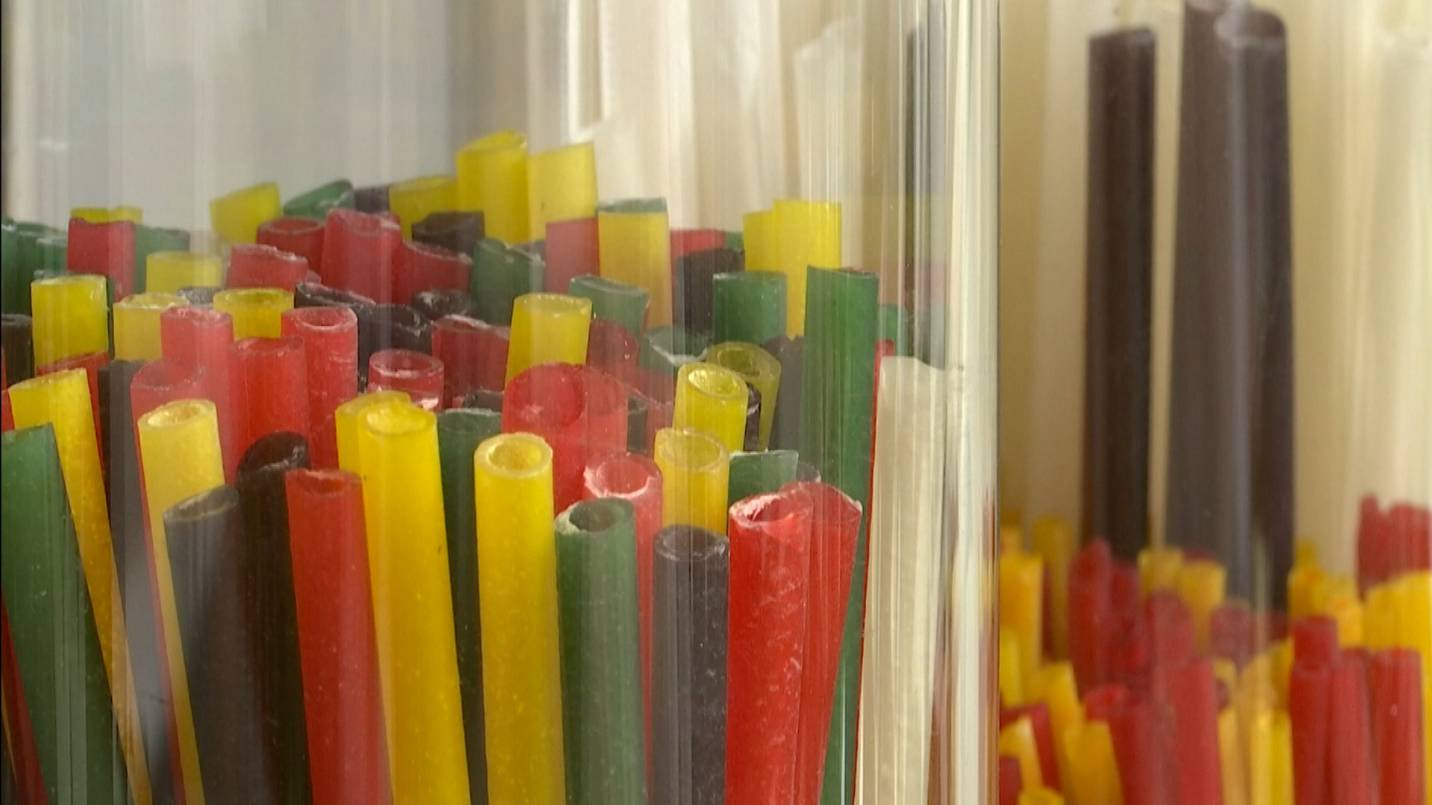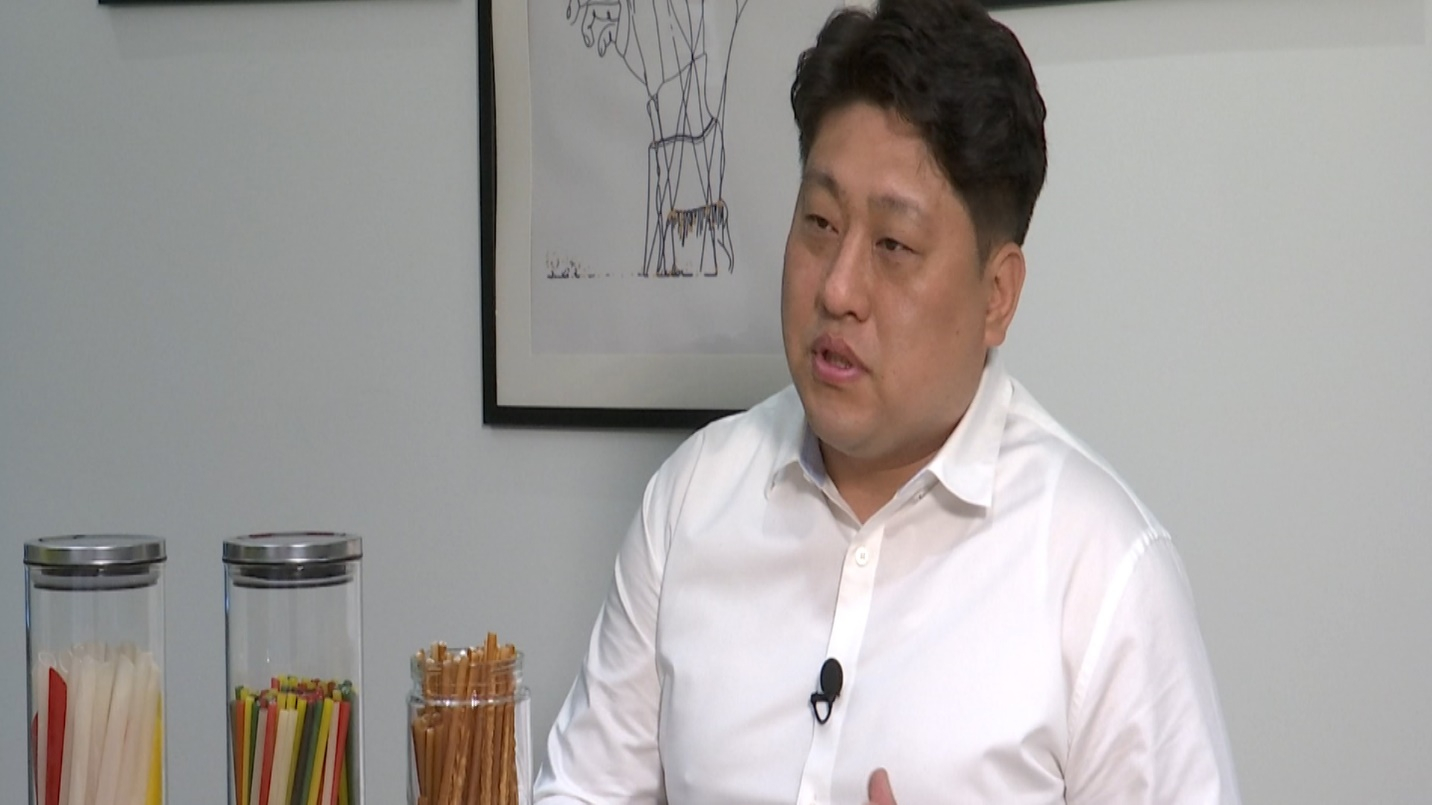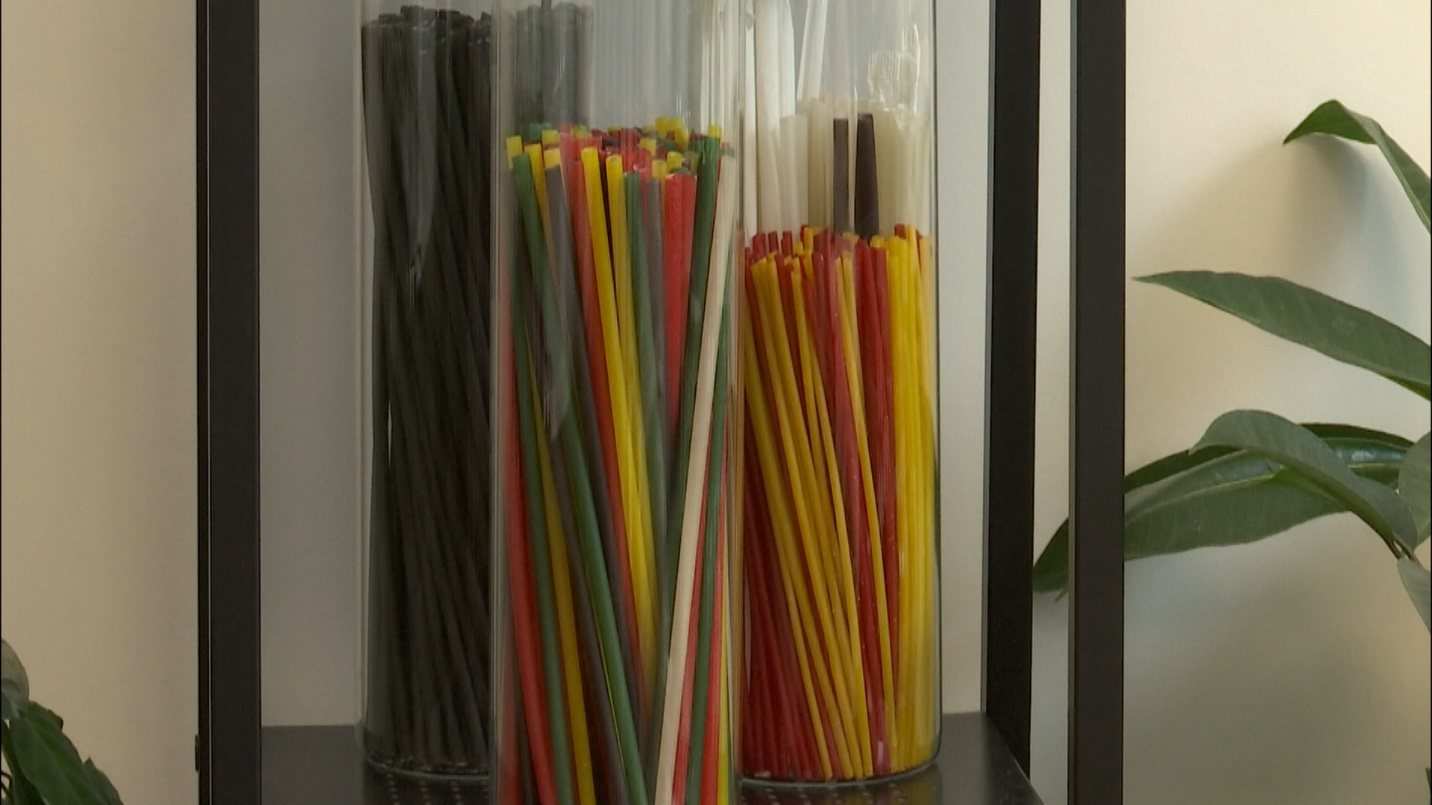
Environment
13:50, 31-May-2019
Rice straws: Something new to sip on
By Shane Hahm

The idea came to Kim Kwang-pil when he first saw an edible cup. He thought to himself, "If they can make a cup you can eat, why not a straw?"
That was the beginning of his company, Yeonjigonji, which manufactures eco-friendly straws made of rice. He settled on rice because the staple is familiar to consumers in his native country South Korea.
The result is a sturdy and nearly scentless straw made of rice flour and tapioca powder. More importantly, the straws are 100 percent biodegradable and completely dissolve within 100 days.

Yeonjigonji CEO Kim Kwang-pil speaks in Seoul with his company's rice straws on display, May 15, 2019. /CGTN Photo
Yeonjigonji CEO Kim Kwang-pil speaks in Seoul with his company's rice straws on display, May 15, 2019. /CGTN Photo
"I recently met with people from a global hotel chain and the person wouldn't believe you could eat the straws. So, when I did, he was convinced," said Kim.
The company has signed deals with companies in nearly two dozen countries throughout Asia, North America, and South America.
Manufacturing occurs in Vietnam.
"I chose Vietnam to make the straws because the rice is more conducive to make them, and it's warm year-round so it's better to source materials," said Kim.
South Koreans consume 2.4 billion plastic straws annually. And like in many other countries, the government is stepping up to reduce the amount of single-use plastics.

Yeonjigonji's rice straws can be made into various shapes, colors, and forms. /CGTN Photo
Yeonjigonji's rice straws can be made into various shapes, colors, and forms. /CGTN Photo
Earlier this year, the government banned major supermarkets and other large-scale retailers from providing plastic bags to customers.
Single-use paper and plastic cups are also prohibited at coffee shops, except for customers ordering beverages to-go.
The nation's largest coffee chain, Starbucks, has eliminated plastic straws and now offers straw-less lids. In fact, the company plans to phase out plastic straws completely at its 28,000 locations worldwide by 2020.
"100 percent of our stores in Korea have adopted paper straws. We have eliminated all use of plastic ones. And by developing a lid that doesn't require a straw, we have reduced the use of single-use straws overall by 50 percent," said company spokesperson Andy Jung.
Kim said he first began his business focusing on profits. But now he feels a moral obligation to protect the environment. Ironically though, his biggest hurdle is cost.
"We currently have the capacity to manufacture about 700 million straws per month. But if we can increase that to up to two billion units, we can get to our goal of dropping the price to match plastic straws," said Kim.
The straws can also be made into various shapes and sizes. Kim's next goal is to create environmentally-friendly, single-use cutlery, like forks, knives, and spoons.
Because they are edible, the rice straws need to pass food safety regulations in each country. But Kim is convinced his straws are a better alternative than paper or other substitutes.
"You still need to cut down trees to make paper straws," said Kim.
(Cover: Yeonjigonji's rice straws. /CGTN Photo)

SITEMAP
Copyright © 2018 CGTN. Beijing ICP prepared NO.16065310-3
Copyright © 2018 CGTN. Beijing ICP prepared NO.16065310-3